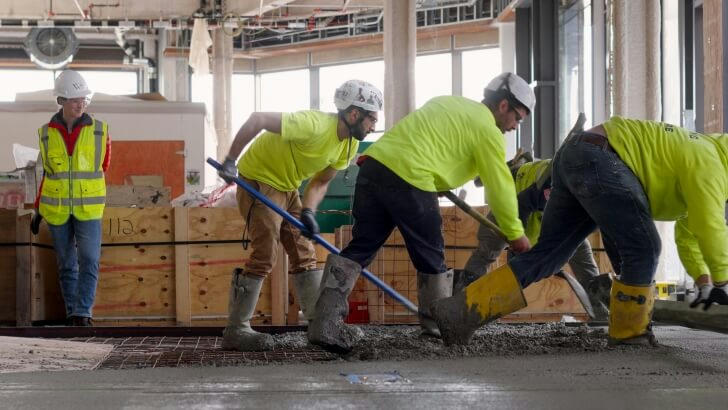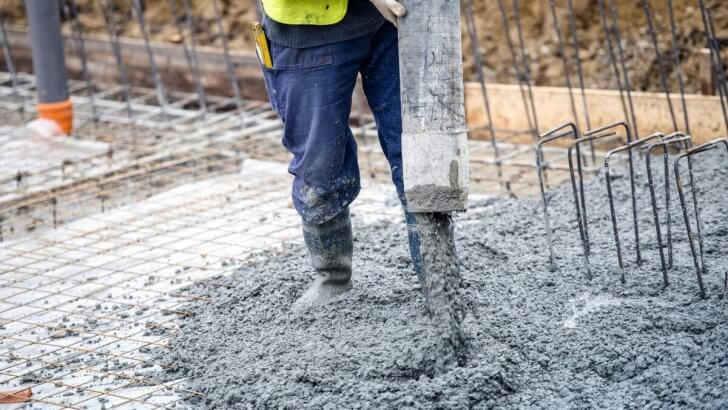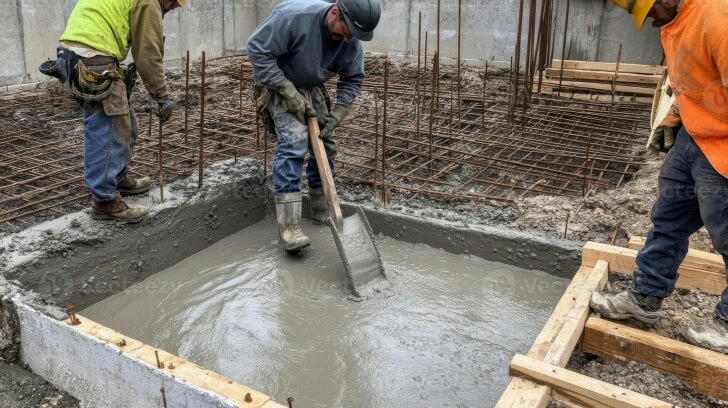Concrete Workers: Building the Foundations of Modern Infrastructure
Concrete workers are crucial to the construction industry, handling the essential task of laying the foundation for homes, offices, roads, and bridges. Their skills in mixing, pouring, and finishing concrete ensure that structures are durable and reliable. As construction projects increase in scale and complexity, skilled concrete workers are in high demand, making this a stable and rewarding career.

Job Description for Concrete Workers
Key Responsibilities:
Mixing and Pouring Concrete: Concrete workers are responsible for mixing concrete to the correct consistency and pouring it into molds or directly onto surfaces like foundations, driveways, or floors.
Setting Up Formwork: One of the most important tasks is preparing the formwork, which holds the concrete in place while it sets. This requires precise measurements to ensure the final structure is even and secure.
Finishing the Concrete Surface: After the concrete is poured, workers use tools to smooth, texture, or stamp the surface. This step gives the concrete its final appearance, whether it’s a smooth floor or a decorative, patterned finish.
Reinforcing Concrete: Concrete workers often add rebar or wire mesh to the concrete before pouring it to increase strength and prevent cracking.
Curing and Sealing: Proper curing is essential to ensure the concrete sets correctly. After curing, workers may apply a sealant to protect the concrete from the elements and increase its longevity.
Site Preparation: Before pouring concrete, workers prepare the site by leveling the ground, removing debris, and sometimes installing drainage systems to ensure the concrete sets on a stable, clean base.
Job Requirements:
Experience: At least two years of experience in construction, with a focus on concrete work. Experience in handling different types of concrete mixes is also highly beneficial.
Skills: Workers must be familiar with concrete mixing ratios, formwork installation, and finishing techniques. The ability to use tools like mixers, trowels, and power tools is essential.
Physical Stamina: Concrete work is physically demanding. Workers need to be able to lift heavy materials and work long hours, often in outdoor or variable weather conditions.
Attention to Detail: Precision is key in concrete work. Even small errors can result in major structural issues, so workers must be meticulous in their work.
Benefits and Career Growth:
Job Stability: Concrete workers are always in demand. With the ongoing need for infrastructure, the job outlook for this profession remains strong.
Competitive Salary: On average, concrete workers earn between $40,000 and $65,000 annually, with potential for higher wages for skilled workers in decorative or high-strength concrete applications.
Career Advancement: With additional training or certifications, concrete workers can move into supervisory roles or specialize in areas like decorative concrete, concrete finishing, or project management.
Health and Benefits: Many employers offer healthcare, paid time off, and retirement plans in addition to competitive pay.

Real-World Success Stories
To better illustrate the role and impact of concrete workers, let's look at a few real-life examples of concrete workers who overcame challenges and achieved success in their careers.
Case 1: Michael’s Challenge with Large-Scale Foundation Pouring
Michael has been a concrete worker for over 12 years, specializing in large commercial projects. He recently worked on the foundation for a new office complex, which required pouring over 200 cubic yards of concrete in a single day.
Problem: The project had a tight deadline and required a large amount of concrete to be poured in one go. Michael was in charge of coordinating the entire operation, but there were concerns about the quality of the pour and whether it could be completed on time.
Solution: Michael coordinated with the supplier to ensure timely delivery of the concrete and managed his team carefully. He also checked the formwork and level before the pour began to ensure no issues would arise. The concrete was poured smoothly and efficiently, meeting both the quality standards and the project deadline. The client was very pleased with the result.
Impact: Michael’s attention to detail and strong leadership helped ensure the foundation was solid and stable, enabling the construction project to continue without delays.
Case 2: Sarah’s Success with Decorative Concrete in Residential Projects
Sarah has been a concrete worker for over 8 years, and she specializes in decorative concrete work for residential clients. Her creativity and expertise in stamped concrete and polished finishes have made her a sought-after professional in the field.
Problem: Sarah was hired by a client who wanted a decorative concrete patio that mimicked the look of natural stone. The challenge was that the existing concrete surface was uneven and cracked, and the homeowner wanted the job completed on a tight schedule.
Solution: Sarah’s team carefully removed the damaged concrete and leveled the surface. They then poured a high-quality mix and used stamping techniques to achieve the desired stone effect. The patio not only looked beautiful but was also durable and stable.
Impact: The client was thrilled with the final result, and Sarah’s work was featured in a local home improvement magazine. As a result, she received several new referrals and was able to expand her business.
Case 3: John’s Innovative Approach to Bridge Construction
John has been a concrete worker for over 20 years and has worked on several high-profile infrastructure projects. He was recently tasked with working on a bridge project that involved pouring high-strength concrete in an area with challenging weather conditions.
Problem: The project faced a significant challenge because the weather was unpredictable, with rain and extreme temperatures making it difficult to pour the concrete properly. This could compromise the strength and durability of the bridge structure.
Solution: John worked closely with the project manager and the materials supplier to develop a plan that involved using a special mix of concrete designed to set under cold and wet conditions. He also made sure the concrete was covered and cured properly to prevent any issues from the fluctuating weather.
Impact: The bridge was completed on schedule, and the concrete performed as expected, with no signs of cracking or weakening. John’s ability to adapt to the challenging conditions ensured the success of the project and helped maintain his reputation as a reliable and skilled worker.

Conclusion
Concrete workers play a vital role in the construction industry, from laying the foundation of homes to creating intricate decorative surfaces. As illustrated in the real-world examples of Michael, Sarah, and John, their work requires not only technical skill but also the ability to adapt to challenges and find solutions. Whether you are working on large commercial projects or smaller residential jobs, a career in concrete work offers stability, competitive wages, and opportunities for advancement. With continued demand for skilled workers in the construction industry, concrete work remains a solid career choice for those with the right skills and determination.
